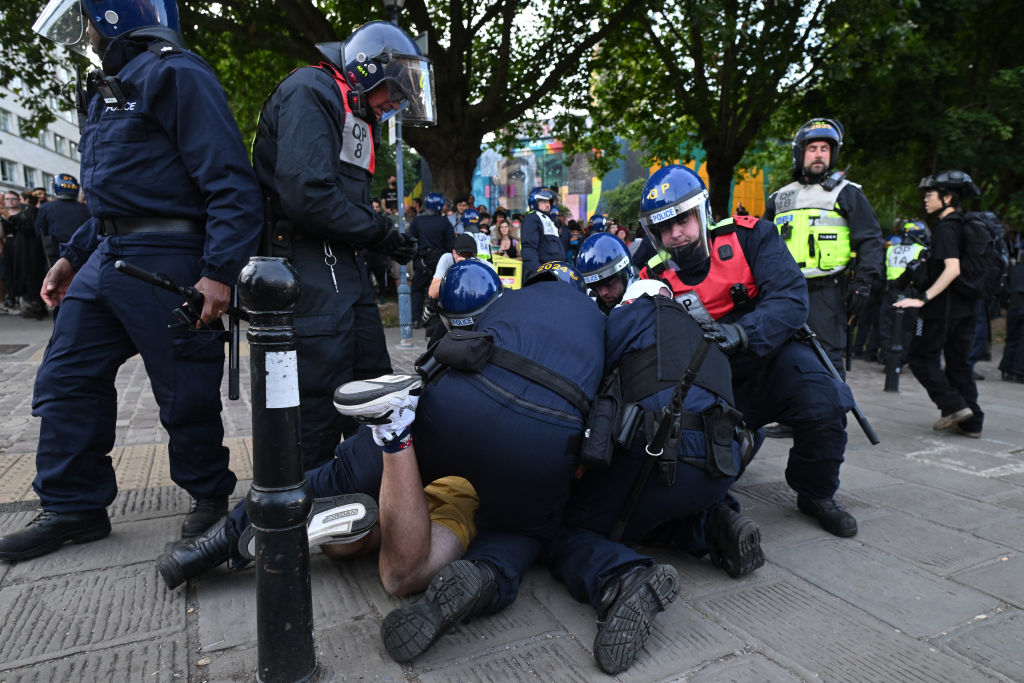Merseyside police were very keen to rule out the Southport attack as ‘terrorism-related’. This was despite subsequent remarks from the Home Office that counter-terrorism police were still assisting the investigation. That muddled explanation will fall on deaf ears. Whether this turns out to be an act encompassed within the dry legalistic definition of terrorism, the dead are still dead.
Why are the police in the firing line this weekend? Why have they not been more forthcoming originally on details? Could a quicker reaction have dampened the riots we have seen over the past few days?
One reason that the police strategy looks so baffling could be Merseyside’s concern that nebulous ‘community cohesion’ must be protected at all costs. Was it a flawed calculation? Did the police decide that releasing too many details would inflame tensions in communities that had previous incidents characterised by ethnicity and religion? If that’s the case, the recent mayhem suggests that strategy is flawed.
The video of the police response to disorder at Manchester airport, the attack on a senior Army officer, disorder in Leeds and Whitechapel all have distinct features of ethnicity and religion. Concern and anger about the policing of these events surely swelled the massive demonstration in London last Saturday led by Tommy Robinson. Accusations of political policing of protest where the intensity of enforcement is greater if the protestor is white, now a meme in itself – ‘two-tier Keir’ have been viewed on social media well over a million times.
We are always encouraged to seek the much safer narrative ground of compassion and concern for victims and survivors – an entreaty made with depressing regularity. But is this sufficient to quell increasing feelings of public rage? Clearly not.
Sir Keir Starmer’s high profile meeting with chief constables and the sombre press conference afterwards has not done enough to quell people’s fears. A national strategy to disrupt far-right extremism is a necessary but insufficient response to violence on the streets that encompasses other forms of extremism, influenced by religion and hard-left sentiment. The threat of Islamist extremist terrorism, for example, dwarfs extreme right capability.
This is a time of social ferment that makes radicalisation more likely. A strong defence of the rule of law against all forms of extremist violence would have been better and could have reduced the temperature more.
Whatever Axel Rudakubana’s trial reveals, and he is entitled to the presumption of innocence until proven guilty, Southport was an act of domestic extremism of almost unparalleled ferocity in the last ten years. The sundered bodies of little children and those adults who we are told bravely tried to defend them holds a unique grasp on the psyche. The horror has been exploited online with powerful imagery conjured up by AI to paint ‘British’ children at the mercy of knife wielding Muslim maniacs.
There is no evidence the knifeman is a Muslim, but we ought to know all the facts about the background of the alleged perpetrator as soon as possible. Further dithering will be exploited by those who want to break community cohesion as a conspiracy. But here we are again. A more agile, assertive, even-handed and transparent approach to the truth by the authorities is the only thing available to counter such propaganda. It is nowhere to be seen.







Comments